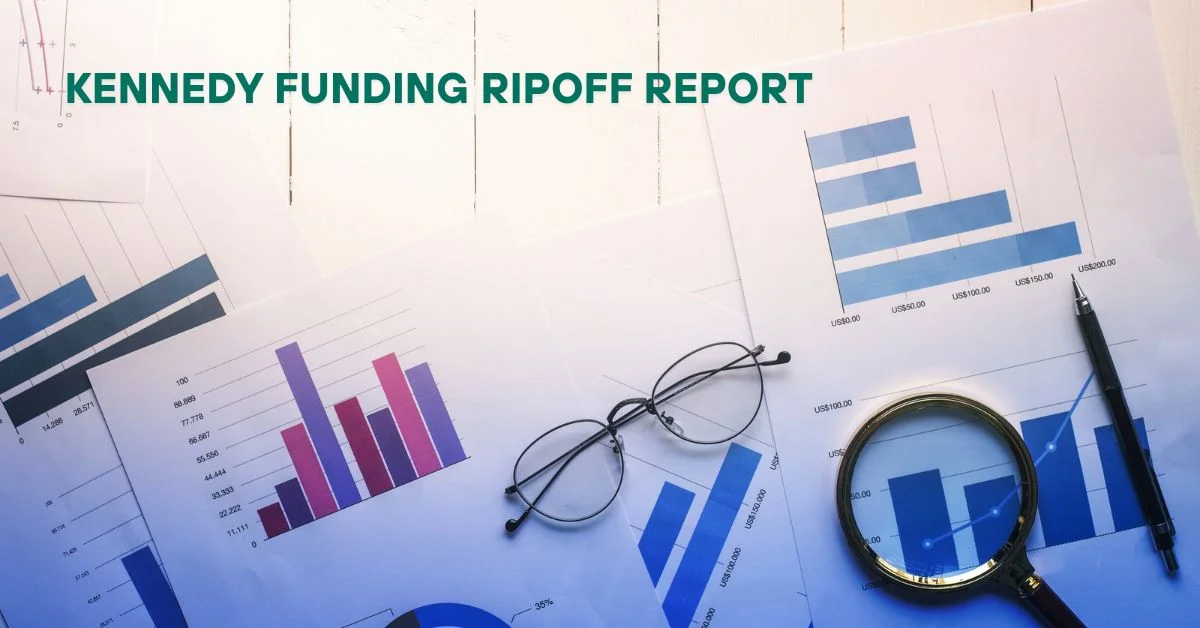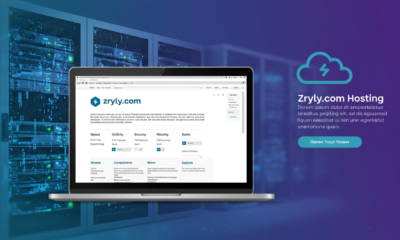Blog
Kennedy Funding Ripoff Report – Understanding the Facts Behind the Claims

The topic of Kennedy Funding Ripoff Report has drawn attention from investors, borrowers, and readers seeking clarity about private lending practices. Kennedy Funding is a well-known direct private lender specializing in hard money loans for real estate projects worldwide. Over the years, some online platforms and forums have raised concerns about loan terms, fees, or experiences, labeling them as “ripoff reports.” But what do these claims really mean? Are they fair, factual, or misleading? This article dives deep into the subject while presenting an unbiased, human-written perspective that aims to help readers understand both sides.
The Background of Kennedy Funding
Kennedy Funding, based in New Jersey, has been active in private lending for decades. The company offers loans for commercial real estate, land development, and international projects that traditional banks often avoid. By providing fast capital and flexible terms, the firm has built a niche market where speed matters more than conventional structures.
While many borrowers praise the accessibility and speed, others have voiced complaints online, often aggregated under titles such as Kennedy Funding Ripoff Report. To assess these claims, one must understand both the business model and the circumstances of borrowers.
Why the Term “Ripoff Report” Appears
The phrase “ripoff report” is often associated with consumer complaint websites where anyone can post experiences—positive or negative—without strict verification. In the context of Kennedy Funding, many posts relate to:
- High interest rates compared to traditional banks.
- Upfront fees and closing costs.
- Strict repayment terms in case of delays.
- Unrealistic borrower expectations of private lending.
This highlights an important distinction: private lenders are not traditional banks. Borrowers attracted to fast approvals sometimes overlook the costs involved, which leads to dissatisfaction.
Kennedy Funding Ripoff Report vs. Borrower Expectations
To better understand, let’s compare borrower expectations versus private lending realities.
| Borrower Expectations | Private Lending Reality |
|---|---|
| Low interest rates like banks | Higher rates due to higher risk |
| Minimal fees | Significant fees for speed and flexibility |
| Long repayment timelines | Shorter terms with strict deadlines |
| Bank-style regulation | Private contract-based agreements |
From this comparison, it becomes clear why the Kennedy Funding Ripoff Report keyword emerges so often: mismatched expectations.
Transparency in Loan Agreements
One recurring theme in online reports is whether Kennedy Funding fully discloses fees and terms. Supporters argue that all agreements are transparent and detailed in contracts, while critics feel blindsided when costs accumulate. This raises an essential point for borrowers:
- Reading contracts thoroughly.
- Consulting legal or financial advisors before signing.
- Understanding the risks associated with private lending.
By doing so, many “ripoff” experiences could potentially be avoided.
Real Estate Lending and Risk
Kennedy Funding specializes in deals that conventional lenders avoid, such as raw land financing, distressed property purchases, and international loans. These are inherently riskier than stable commercial properties. With higher risks come higher interest rates, fees, and stricter terms.
Borrowers who approach private lenders must recognize that these loans are structured for high-risk, high-reward scenarios. Labeling them as a “ripoff” without acknowledging the risk profile may be unfair, but it reflects the emotional frustration of borrowers struggling with repayment.
The Positive Side Often Overlooked
While much of the Kennedy Funding Ripoff Report content online emphasizes negative experiences, it is worth noting the company’s achievements:
- Closing over $3 billion in loans worldwide.
- Funding deals across more than 50 countries.
- Helping developers secure projects that banks would not touch.
For many borrowers, Kennedy Funding represents a lifeline to pursue ventures that would otherwise stall. These success stories rarely make it to consumer complaint boards, creating a skewed perception.
Kennedy Funding Ripoff Report and SEO
Interestingly, the keyword Kennedy Funding Ripoff Report has become a popular search phrase due to its sensational nature. In SEO terms, this highlights how negative content often ranks higher than neutral or positive commentary. For businesses, it becomes vital to address such claims transparently and consistently to maintain credibility.
Borrower Responsibility
Another critical aspect is borrower responsibility. Many reports indicate dissatisfaction after deals do not go as planned. Yet private lending is clear about conditions:
- High interest rates reflect the absence of traditional collateral review.
- Fees cover the risk and speed of closing.
- Repayment terms are non-negotiable once signed.
Borrowers who ignore these realities may feel misled, even though all terms are contractually binding. This mismatch feeds the cycle of online ripoff reports.
Comparing Kennedy Funding to Other Lenders
It is also useful to compare Kennedy Funding with other private lenders.
| Factor | Kennedy Funding | Typical Private Lender |
|---|---|---|
| Global reach | Over 50 countries | Mostly domestic |
| Loan amounts | $1M to $50M+ | Often capped at $5M–$10M |
| Speed | Weeks to close | Varies but often slower |
| Borrower feedback | Mixed (positive and ripoff reports) | Similarly mixed |
This table shows that Kennedy Funding’s model is not unique in generating complaints. The nature of private lending itself tends to spark divided opinions.
Addressing the Kennedy Funding Ripoff Report Criticism
To balance the narrative, one must acknowledge both sides:
- Borrowers should carefully review contracts and manage expectations.
- Lenders like Kennedy Funding could benefit from greater transparency in explaining risks and costs upfront.
By bridging this gap, fewer disputes would escalate into public ripoff reports.
Lessons for Borrowers
The broader lesson is that private lending is not for everyone. Borrowers must evaluate:
- Can they handle higher repayment obligations?
- Do they have an exit strategy if projects stall?
- Is private funding the only option compared to partnerships or traditional banks?
Asking these questions before signing prevents frustration later.
Conclusion – The Real Story Behind Kennedy Funding Ripoff Report
The Kennedy Funding Ripoff Report narrative reflects a mix of borrower dissatisfaction, mismatched expectations, and the natural risks of private lending. While some complaints may highlight genuine concerns, many arise from misunderstandings about how private loans work. Kennedy Funding continues to operate globally, funding projects banks avoid, which indicates sustained demand despite the criticism.
Ultimately, the term “ripoff” may not fully capture the complexity of private lending. Borrowers who educate themselves, review contracts carefully, and seek professional advice are far less likely to feel misled. The conversation around Kennedy Funding, therefore, is less about scams and more about the inherent trade-offs in choosing speed and flexibility over conventional lending.
Blog
MKVMoviePoint: Your Ultimate Destination for Free Movie Streaming

Are you tired of scrolling through endless streaming platforms, only to find that your favorite movies are locked behind a paywall? Welcome to MKVMoviePoint, where movie lovers can indulge in their cinematic cravings without spending a dime. This ultimate destination for free movie streaming offers an extensive library that caters to every taste—whether you’re into action-packed blockbusters or heartwarming indie films. With its user-friendly interface and seamless navigation, MKVMoviePoint makes finding the perfect film as easy as pie. Say goodbye to subscription fees and hello to hours of entertainment at your fingertips!
The Features and Benefits of MKVMoviePoint
MKVMoviePoint stands out with its user-friendly interface. Navigating through the platform is a breeze, whether you’re tech-savvy or just starting to explore online streaming.
One of the key features is an extensive library. You’ll find everything from classic films to the latest blockbusters. The diversity caters to all tastes and preferences.
Another significant advantage is high-quality streaming options. Users can enjoy movies in various resolutions, ensuring an optimal viewing experience regardless of their internet speed.
Moreover, MKVMoviePoint offers regular updates on new releases. This means you won’t miss out on trending titles or hidden gems.
The site also prides itself on quick loading times, reducing frustration while waiting for your movie choice to buffer. It’s designed for seamless viewing without unnecessary interruptions.
There’s no need for subscriptions or hidden fees—just pure entertainment at your fingertips!
How to Use MKVMoviePoint for Free Movie Streaming
Using MKVMoviePoint is a breeze. Start by visiting the official website. The user-friendly interface welcomes you with various options.
Browse through an extensive library of movies and shows. You can search by genre, year, or title. This makes finding your favorite flicks effortless.
Once you spot a movie that piques your interest, click on it for more details. You’ll find information like cast, synopsis, and quality options.
When you’re ready to stream, just hit the play button. Most content streams smoothly without annoying ads interrupting your viewing experience.
For those who prefer downloading, MKVMoviePoint offers that option too. Simply select the download link and choose your preferred format.
Enjoy watching high-quality films without any subscription fees or hidden charges!
Why Choose MKVMoviePoint Over Other Streaming Websites?
When it comes to free movie streaming, MKVMoviePoint stands out from the crowd. Its user-friendly interface makes navigation easy for everyone. You don’t need to be tech-savvy to find your favorite films.
The extensive library is another significant advantage. With a diverse collection of genres, users can explore everything from classic films to the latest blockbusters. This variety keeps viewers engaged and entertained.
Additionally, MKVMoviePoint offers high-quality streams without annoying ads interrupting your viewing experience. Many other sites are cluttered with distractions that can ruin a good movie night.
Moreover, regular updates ensure that new titles are added consistently. Staying current with popular releases means you won’t miss out on trending content or hidden gems waiting to be discovered.
Community feedback helps shape its offerings, making MKVMoviePoint more responsive to viewer preferences than many other platforms in the market today.
Common Misconceptions About Free Movie Streaming
Many people believe that free movie streaming sites are synonymous with low-quality content. However, platforms like MKVMoviePoint challenge this belief by offering a vast library of high-definition films. Users can find both classic and contemporary titles, ensuring there’s something for everyone.
Another misconception is that accessing free streaming services carries significant risks. While it’s true some sites may pose security threats, reputable platforms prioritize user safety. They implement measures to protect personal information and deliver a secure viewing experience.
Some also argue that these services lack updated content. In reality, MKVMoviePoint frequently refreshes its catalog with new releases alongside timeless favorites. This dynamic selection keeps viewers engaged without the burden of subscription fees.
Many assume that using free streaming means enduring constant interruptions from ads or pop-ups. Well-designed websites focus on user experience by minimizing such distractions, allowing seamless enjoyment of movies without hassle.
The Future of Online Movie Streaming
The landscape of online movie streaming is evolving rapidly. New technologies are shaping how we consume content and enhancing viewer experiences.
Artificial intelligence is at the forefront, personalizing recommendations based on user preferences. This means that every viewer can find something tailored just for them.
Moreover, advancements in internet speeds and bandwidth will allow for higher-quality streaming without buffering issues. Imagine watching 4K or even 8K movies seamlessly from the comfort of your home.
Blockchain technology may also play a pivotal role in securing digital rights and reducing piracy concerns. This could revolutionize how filmmakers distribute their work while ensuring fair compensation.
As more platforms emerge, competition heats up, leading to innovative features like interactive storytelling and virtual reality cinema experiences. The future promises an exciting blend of creativity and technology that can redefine our relationship with film altogether.
Conclusion
MKVMoviePoint stands out in the crowded world of online movie streaming. Its user-friendly interface, combined with a vast library of films and shows, makes it an appealing choice for movie enthusiasts. The ability to access content without any subscription fees is undeniably attractive.
While misconceptions about free streaming often circulate, MKVMoviePoint proves to be a reliable option when used responsibly. Users can navigate through various genres and discover hidden gems that might otherwise go unnoticed on mainstream platforms.
As technology continues to evolve, so will the landscape of online streaming. Platforms like MKVMoviePoint are paving the way for more accessible entertainment options while offering users an enticing alternative to traditional paid services.
Exploring your favorite films should never feel like a hassle. With MKVMoviePoint, you have everything you need right at your fingertips—making it easier than ever to enjoy cinema from the comfort of your home or on-the-go.
Blog
Kalidcan: A Comprehensive Guide to Its Origins and Uses

In the ever-evolving world of wellness and natural remedies, Kalidcan has emerged as a fascinating topic of discussion. This unique substance boasts a rich history and an array of potential benefits that intrigue both enthusiasts and newcomers alike. Whether you’re seeking to enhance your health or simply curious about its origins, there’s much to uncover about Kalidcan. From ancient traditions to modern applications, this comprehensive guide will take you on a journey through time and usage, revealing why Kalidcan deserves a spot in your daily routine. Let’s dive in!
What is Kalidcan?
Kalidcan is a natural compound derived from various plants, known for its potential health-boosting properties. It has gained popularity in wellness circles due to its unique composition and versatility.
Often found in herbal supplements, Kalidcan can come in different forms such as powders or extracts. This adaptability makes it easy to incorporate into various products, ranging from teas to capsules.
What sets Kalidcan apart are the active compounds that contribute to its effects on the body. These components work synergistically, offering support for overall well-being.
With roots deeply embedded in traditional practices, Kalidcan holds a special place among those who seek holistic approaches to health. Its journey through time reflects not just an ancient wisdom but also the modern quest for sustainable living choices.
The Origins of Kalidcan
Kalidcan has a rich history that traces back to ancient civilizations. Its origins are often linked to herbal practices within traditional medicine systems. Cultures across Asia have utilized Kalidcan for centuries, recognizing its potential benefits.
The word itself is derived from local dialects, with roots that reflect the plant’s natural habitat and uses. Often found in lush forests and valleys, it thrives in specific climates.
Historically, healers would gather Kalidcan for its purported healing properties. They employed it as a remedy for various ailments, passing down knowledge through generations. This deep connection with nature highlights how communities revered this plant long before modern science took notice.
As time progressed, interest spread beyond borders. Scholars began documenting its attributes and applications, paving the way for further research into this fascinating botanical wonder.
Traditional Uses of Kalidcan
Kalidcan has deep roots in various cultures, revered for its medicinal properties. Traditionally, it was used in herbal remedies to address a range of ailments. Healers would often prepare infusions or tinctures from the plant.
In Ayurvedic medicine, Kalidcan is known for balancing doshas and promoting overall wellness. Its adaptogenic qualities help the body manage stress more effectively.
Indigenous communities have also employed Kalidcan in rituals and ceremonies. They believe it enhances spiritual connection and promotes mental clarity during meditation practices.
Additionally, some traditional cuisines incorporate Kalidcan as a flavoring agent, adding depth to dishes while offering health benefits. The rich history surrounding this versatile plant showcases its importance across different societies.
Modern Applications of Kalidcan
Kalidcan has gained traction in various modern industries due to its versatile properties. In the realm of wellness, it is now a popular ingredient in dietary supplements and herbal formulations. Many enthusiasts appreciate its potential health benefits, making it a staple on health store shelves.
In beauty products, Kalidcan’s natural extracts are celebrated for their skin-soothing qualities. Brands incorporate it into creams and serums aimed at enhancing hydration and radiance.
The food industry isn’t left out either. Innovative chefs use Kalidcan as an exotic spice or flavor enhancer, adding depth to dishes while introducing customers to its unique profile.
Moreover, researchers explore Kalidcan’s applications in sustainable practices. Its components show promise for eco-friendly packaging solutions, merging ancient wisdom with contemporary needs effectively. Such diverse uses showcase how Kalidcan continues evolving within our daily lives today.
The Benefits of Using Kalidcan
Kalidcan offers a range of benefits that can enhance your overall well-being. One of its most notable advantages is its potential to boost energy levels. Many users report feeling more vibrant and active after incorporating it into their routines.
Another key benefit lies in its ability to support mental clarity. Kalidcan may help improve focus and concentration, making it a great addition for those needing an extra edge during busy workdays or study sessions.
Additionally, this versatile ingredient has been praised for promoting digestive health. It can aid in easing discomfort and maintaining regularity, contributing to a healthier gut.
Skin health also sees improvements with Kalidcan’s use. Its natural properties may help combat blemishes, giving you clearer skin over time.
With so many benefits on offer, it’s no wonder that Kalidcan is becoming increasingly popular among wellness enthusiasts looking for holistic solutions.
How to Incorporate Kalidcan into Your Daily Routine
Integrating Kalidcan into your daily routine can be both simple and rewarding. Start by adding it to your morning smoothie for a nutritional boost. A teaspoon mixed with fruits and greens offers an excellent way to kick-start your day.
You can also sprinkle Kalidcan on salads or soups. It enhances flavor while providing health benefits, making each meal more nutritious without compromising taste.
For those who enjoy herbal teas, try steeping Kalidcan in hot water. This soothing drink can be a perfect afternoon pick-me-up.
If you prefer topical applications, consider mixing Kalidcan powder with carrier oils like coconut or olive oil. This blend works wonders on the skin, offering hydration and nourishment.
Experimenting is key! Look for creative ways that fit your lifestyle while maximizing the perks of this versatile ingredient.
Potential Side Effects and Precautions
While Kalidcan offers various benefits, it’s essential to be aware of potential side effects. Some users may experience mild gastrointestinal discomfort, such as bloating or gas. These reactions are typically temporary.
Allergic reactions can occur in rare cases. If you notice any unusual symptoms after using such as rash or swelling, discontinue use and consult a healthcare professional.
Pregnant or nursing individuals should exercise caution before incorporating into their routines. It’s always best to seek advice from a healthcare provider when considering new supplements during these stages.
Interaction with medications is another aspect to consider. If you’re on prescription drugs, especially blood thinners or sedatives, discussing your plans with your doctor will help avoid unwanted complications.
By being informed about these aspects, you can make safe choices regarding the use of Kalidcan in your daily life.
Conclusion
Kalidcan is an intriguing substance with a rich history and a variety of uses. From its origins in traditional practices to its modern applications, it has captured the interest of many. Its benefits range from enhancing well-being to providing therapeutic effects, making it a versatile addition to various lifestyles.
Incorporating into your daily routine can be simple and rewarding. Whether through teas, tinctures, or topical applications, there are countless ways to enjoy what it offers. However, it’s always wise to consider potential side effects and consult with healthcare professionals if you’re unsure about how it might affect you.
As more research emerges and awareness grows, continues to shine as a valuable resource for those seeking natural solutions for health and wellness needs. Exploring this unique compound further could lead you down exciting avenues of discovery that promote both physical health and mental clarity.
Blog
Sankkucomplex: How is Changing the Way We Experience Spaces

Imagine walking into a space that feels alive, where every corner tells a story and every element is interconnected. This is the essence of Sankkucomplex—a revolutionary approach reshaping how we experience our environments. As urban areas grow denser and lifestyles evolve, traditional architecture struggles to keep pace with the needs of modern society. Enter Sankkucomplex: an innovative concept that melds art, technology, and community to create vibrant spaces tailored for engagement and interaction.
This transformative movement isn’t just about aesthetics; it’s about rethinking functionality in our built environments. In this blog post, we will explore what makes Sankkucomplex so compelling, its myriad benefits, real-world applications through case studies, and its potential future impact on architecture and design. Get ready to rethink everything you thought you knew about spaces!
What is Sankkucomplex?
Sankkucomplex is a revolutionary concept that redefines how we interact with our environments. It combines technology, design, and community to create spaces that are not only functional but also emotionally resonant.
At its core, Sankkucomplex emphasizes fluidity and adaptability. Spaces designed under this philosophy can change according to user needs or environmental conditions. This flexibility enhances the overall experience of any location.
The idea transcends traditional architecture. It’s about creating immersive experiences rather than static structures. The focus shifts from mere aesthetics to enhancing human connections within these spaces.
By integrating smart technologies, such as IoT devices and AI algorithms, Sankkucomplex offers responsive environments that engage users on multiple levels. This innovative approach allows for sustainable practices while fostering creativity and collaboration among individuals who inhabit these dynamic areas.
The Benefits of Sankkucomplex
Sankkucomplex redefines how we interact with our surroundings. It offers a seamless blend of functionality and aesthetics, creating spaces that resonate deeply with users.
One significant benefit is flexibility. These environments can adapt to various needs, accommodating everything from collaborative workspaces to serene retreats.
Another advantage lies in sustainability. Sankkucomplex prioritizes eco-friendly materials and designs, fostering harmony between nature and human activity.
Additionally, it promotes community engagement. Spaces designed within this framework encourage people to connect, share ideas, and collaborate on projects that matter.
The innovative approach also enhances user experience through immersive design elements that stimulate the senses. This leads to increased creativity and productivity in both personal and professional settings.
Embracing the benefits of Sankkucomplex opens up new avenues for living, working, and interacting in more meaningful ways.
The Impact on Traditional Architecture and Design
Sankkucomplex is redefining the landscape of architecture and design. Its influence can be seen in the way spaces are conceptualized and utilized.
Traditional architecture often adheres to rigid forms, focusing on aesthetics and historical significance. However, Sankkucomplex challenges this notion by embracing fluidity and adaptability. Spaces are now designed for interaction rather than mere observation.
This approach encourages architects to think outside conventional boundaries. It invites experimentation with materials, layouts, and functionality. Buildings transform into living entities that respond to their environment.
Furthermore, traditional designs may feel constrained by established practices. The innovative spirit of Sankkucomplex frees designers from these limitations, promoting a more inclusive vision of what space can be.
As a result, we witness an exciting fusion where heritage meets modernity—creating environments that resonate with people’s needs today while respecting historical context. This evolution paves the way for more dynamic architectural narratives in our urban landscapes.
Case Studies: Examples of Successful Sankkucomplex Projects
One standout example of a successful Sankkucomplex project is the EcoHub in Tokyo. This innovative space merges sustainability with urban living, featuring green roofs and energy-efficient designs. The community aspect fosters collaboration among local businesses, artists, and residents.
In Barcelona, the Art District Revitalization showcases another impressive application. Abandoned warehouses were transformed into vibrant studios and galleries. Artists now have a platform to showcase their work while attracting tourists and locals alike.
The Urban Oasis Project in Singapore highlights how Sankkucomplex can create serenity amidst bustling city life. With lush gardens integrated into residential towers, it promotes wellness through nature exposure.
These projects demonstrate how Sankkucomplex redefines spaces by enhancing functionality while fostering community engagement. They serve as benchmarks for what can be achieved when creativity meets practicality in design.
Challenges and Criticisms
Despite its innovative approach, Sankkucomplex faces several challenges. One major concern is the adaptability of traditional structures to fit this new concept. Many architects struggle with integrating modern technology while preserving cultural heritage.
Critics also point out the potential for over-commercialization. As spaces become more experiential, there’s a risk that authenticity may be sacrificed for profit. Visitors might find themselves in environments designed solely for consumption rather than genuine connection.
Sustainability remains another hot topic. Implementing eco-friendly practices within the framework of Sankkucomplex can be complex and costly. The focus on immersive experiences could lead to increased resource consumption if not managed wisely.
There’s a need for public acceptance and understanding. Shifting perceptions about what constitutes valuable space requires time and education, making it essential to engage communities effectively in these transformations.
Future Possibilities and Potential for Growth
The future of Sankkucomplex holds immense promise. As technology continues to evolve, so does the potential for creating innovative spaces that enhance human experience.
Imagine intelligent environments that adapt in real-time to user needs. Integration of AI and IoT could revolutionize how we interact with our surroundings, making spaces more responsive and personalized.
Sankkucomplex also opens doors for sustainability. Using eco-friendly materials and energy-efficient designs can transform urban landscapes into greener havens. This approach not only benefits occupants but also addresses pressing environmental concerns.
Moreover, the concept encourages collaboration across disciplines—architecture, art, psychology—all working together to create immersive experiences.
As communities embrace this vision, we may witness a cultural shift towards valuing shared spaces over traditional segregated ones. The possibilities are as vast as they are exciting, hinting at a vibrant future where space becomes an extension of our identities and aspirations.
Embracing the Innovative Concept of Sankkucomplex
Embracing the innovative concept of Sankkucomplex opens a world rich with possibilities. It encourages us to rethink how we interact with our environments. This approach emphasizes fluidity and adaptability in design, allowing spaces to evolve as needs change.
By integrating technology and sustainable practices, Sankkucomplex redefines functionality. Spaces become not just places to inhabit but immersive experiences that foster creativity and community engagement.
Imagine a workspace that transforms into a social hub after hours or an educational facility that adapts its layout for different learning styles. The versatility inherent in Sankkucomplex can lead to smarter urban planning.
This paradigm shift invites architects, designers, and users alike to collaborate more closely than ever before. As communities embrace this concept, they pave the way for designs that resonate on deeper levels—reflecting cultural identities while promoting inclusivity and innovation in every corner.
Conclusion
Sankkucomplex is redefining our interaction with spaces. As we embrace this innovative concept, the potential for creativity and functionality expands dramatically. From urban landscapes to personal environments, Sankkucomplex promotes a new kind of design that prioritizes human experience.
Through its unique approach, it challenges conventional architecture and encourages us to rethink how we live and work. The case studies showcase successful implementations that inspire further exploration in various sectors.
While there are challenges ahead—such as integrating traditional techniques with modern ideals—the benefits far outweigh the hurdles. This evolving idea invites architects, designers, and everyday individuals to collaborate in creating spaces that resonate on deeper levels.
As interest grows in sustainable practices and adaptable designs, the future of Sankkucomplex looks promising. It paves the way for innovation while enhancing our environments in meaningful ways.
Embracing Sankkucomplex means embracing change—a chance to contribute positively to how we experience our world daily. An exciting journey lies ahead as more people recognize its value in crafting spaces tailored for connection and creativity.
-

 Business9 months ago
Business9 months agoUnderstanding the Significance of License Plate 鲁Q 669FD
-

 Technology8 months ago
Technology8 months agoIs 8884216488 a Scam? Debunking Common Myths
-

 Technology8 months ago
Technology8 months ago164.68111.161: A Comprehensive Guide
-

 Digital Marketing8 months ago
Digital Marketing8 months agoWepbound: The Future of Digital Connectivity
-

 Entertainment8 months ago
Entertainment8 months agoStreameast: The Best Free Live Sports Streaming Platform in 2025
-

 Technology9 months ago
Technology9 months agoJustin42501: Redefining The Future Of Digital Connection and Growth
-

 Crypto8 months ago
Crypto8 months agoCrypto30x.com GG: Is It the Future of Crypto Investment?
-

 Crypto9 months ago
Crypto9 months agoCrypto30x.com AC Milan: A New Era for Fans Through Digital Currency
-

 Blog5 months ago
Blog5 months agoهنتاوي com: A Unique Anime Universe Awaits!
-

 Digital Marketing8 months ago
Digital Marketing8 months agoZryly.com Hosting: A Comprehensive Review of Their Its Services
